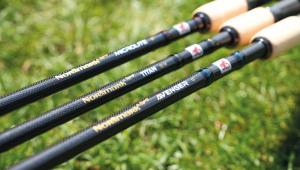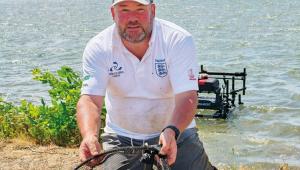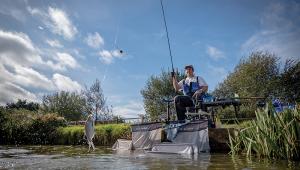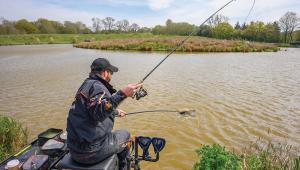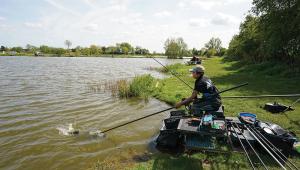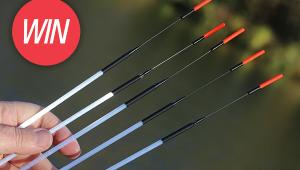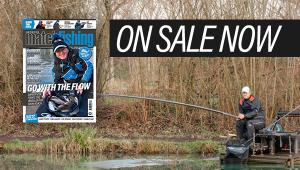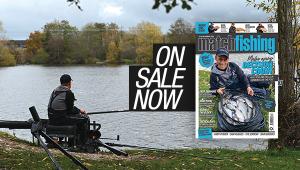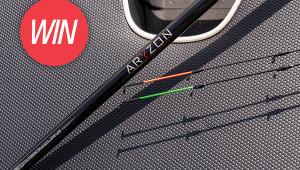The Pursuit Of Perfection!
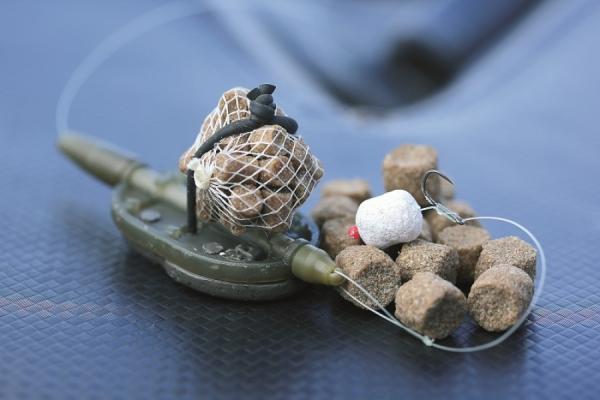
Are some methods more skillful than others? Tom Scholey thinks so!
I read with interest Alex Bones’s Editorial in the latest issue of Match Fishing. I have really been enjoying his pieces over the last few months, as he has spoken his mind on a number of issues - and up to now I have agreed with his points wholeheartedly.
In this months magazine, he raises an interesting topic- arguing that it is not fair to put certain methods on a pedestal, and suggesting that they all require a similar amount of skill to be proficient at.
Based on my own experiences, I couldn’t disagree more. The truth of the matter is, certain methods have been designed to make things easy for the angler – so by their very nature, they are far easier to perfect than others.
The prime example of this is Method feeder fishing. It is, at its most complicated trap setting. That is not to say that it doesn’t require a certain amount of skill, because it does – but it doesn’t come close to the amount of proficiency required to become a regular winner on, say bloodworm, squatt, or hemp.
With any discipline of angling, there are an infinite number of refinements that you can make to perfect the technical aspect of your approach. In Method feeder fishing, this may be working out the best mix for a given day, the correct size and weight of feeder to use and the correct length of hooklength and choice of hookbait – but the really sad part about the Method is that all that refinement can (and often does) have very little effect on your result on the end of the match. If you are on enough fish, the chances are you will win, even if you keep it simple.
I can vouch for this from first hand experience – I would be the first to admit that I am not the worlds best at casting. Nor do I do anything particularly technical or complicated when it comes to Method fishing. I only ever use a 50/50 mix of groundbait (generally Sonubait Method Mix) and Micro pellets where allowed, and hookbait is either two dead red maggots, a 6mm banded pellet or a white boilie.
Advice that I have read in magazines such as Match Fishing has taught me to cast out, put my rod on the rest and take in excess line without moving my feeder. The only other important thing to remember is not strike until the rod tip pulls around. Fishing in this way, I have had more than my fair share of success – when I have been on fish I have beaten some of the country’s top names, and won plenty of matches.
Don’t get me wrong, I could be a lot better and I want to improve, as there have been occasions when doing things better would have caught me more –but the dynamics of the Method are such that even a very average feeder angler like myself can beat the best when on fish, as long as I follow a relatively simple set of instructions.
Afterall, the Method is designed to be easy - someone who has never been fishing before could can walk into a tackle shop and buy a feeder with a mould, a bag of ready mixed Method groundbait, and a tub of purpose built hookers, and go out and catch 100lb+.
The same cannot be said as easily of other fishing methods - bloodworm and joker being a prime example - and the reason for this is that there are far more variables. All of the technical questions that apply to Method feeder fishing apply here too. You have to select the right float pattern, the right size rig, the right shotting pattern, the right hooksize, the right elastic- and workout what bait is best on the day.
What sets the more skilful methods apart though is that the questions don’t stop there. You have to workout for yourself what quantity of bait to introduce at the start, and when to top up. You also have to experiment with depths to find out whether the fish want to feed off the bottom or on it. Would a lighter rig bring you more bites? Would a heavier rig allow you to catch quicker? Would a more strung out shotting pattern bring you a better stamp of fish? Should you plunder just one swim or change line? The questions are endless – and while in Method fishing you are encouraged not to do anything at all – simply wait for the rod to pull around, with bloodworm and joker fishing you are constantly trying to workout how to get your next bite and improve your efficiency.
Relatively speaking, I am a far better bloodworm angler than I am Method feeder angler. And yet, on the bloodworm matches I fish, I beat the star anglers far less than I do when it comes to the summer, and I fish carp matches.
In my eyes, the only reason for this can be that these anglers are more skilfull than me, and that luck plays into my hands far less.
Don’t get me wrong, there are exceptions to this rule – as Mark Downes once famously said, ‘even a blind squirrel finds a nut occasionally’ and the nature of the sport means that star anglers can draw badly.
The match results pages of the weekly angling papers back up my argument though- If you look down the results of say, the Stainforth and Keadby Canal you will see the same names week after week – Lee Kerry, Alan Scotthorne, Sean Ashby, James Dent and Matt Godfrey will generally be there or thereabouts.
Compare this to a carp water, where bomb and feeder fishing dominate, and I would like to bet that you will see a host of different names making the frame – as different anglers get their share of good draws.
I read with interest Alex Bones’s Editorial in the latest issue of Match Fishing. I have really been enjoying his pieces over the last few months, as he has spoken his mind on a number of issues - and up to now I have agreed with his points wholeheartedly.
In this months magazine, he raises an interesting topic- arguing that it is not fair to put certain methods on a pedestal, and suggesting that they all require a similar amount of skill to be proficient at.
Based on my own experiences, I couldn’t disagree more. The truth of the matter is, certain methods have been designed to make things easy for the angler – so by their very nature, they are far easier to perfect than others.
The prime example of this is Method feeder fishing. It is, at its most complicated trap setting. That is not to say that it doesn’t require a certain amount of skill, because it does – but it doesn’t come close to the amount of proficiency required to become a regular winner on, say bloodworm, squatt, or hemp.
With any discipline of angling, there are an infinite number of refinements that you can make to perfect the technical aspect of your approach. In Method feeder fishing, this may be working out the best mix for a given day, the correct size and weight of feeder to use and the correct length of hooklength and choice of hookbait – but the really sad part about the Method is that all that refinement can (and often does) have very little effect on your result on the end of the match. If you are on enough fish, the chances are you will win, even if you keep it simple.
I can vouch for this from first hand experience – I would be the first to admit that I am not the worlds best at casting. Nor do I do anything particularly technical or complicated when it comes to Method fishing. I only ever use a 50/50 mix of groundbait (generally Sonubait Method Mix) and Micro pellets where allowed, and hookbait is either two dead red maggots, a 6mm banded pellet or a white boilie.
Advice that I have read in magazines such as Match Fishing has taught me to cast out, put my rod on the rest and take in excess line without moving my feeder. The only other important thing to remember is not strike until the rod tip pulls around. Fishing in this way, I have had more than my fair share of success – when I have been on fish I have beaten some of the country’s top names, and won plenty of matches.
Don’t get me wrong, I could be a lot better and I want to improve, as there have been occasions when doing things better would have caught me more –but the dynamics of the Method are such that even a very average feeder angler like myself can beat the best when on fish, as long as I follow a relatively simple set of instructions.
Afterall, the Method is designed to be easy - someone who has never been fishing before could can walk into a tackle shop and buy a feeder with a mould, a bag of ready mixed Method groundbait, and a tub of purpose built hookers, and go out and catch 100lb+.
The same cannot be said as easily of other fishing methods - bloodworm and joker being a prime example - and the reason for this is that there are far more variables. All of the technical questions that apply to Method feeder fishing apply here too. You have to select the right float pattern, the right size rig, the right shotting pattern, the right hooksize, the right elastic- and workout what bait is best on the day.
What sets the more skilful methods apart though is that the questions don’t stop there. You have to workout for yourself what quantity of bait to introduce at the start, and when to top up. You also have to experiment with depths to find out whether the fish want to feed off the bottom or on it. Would a lighter rig bring you more bites? Would a heavier rig allow you to catch quicker? Would a more strung out shotting pattern bring you a better stamp of fish? Should you plunder just one swim or change line? The questions are endless – and while in Method fishing you are encouraged not to do anything at all – simply wait for the rod to pull around, with bloodworm and joker fishing you are constantly trying to workout how to get your next bite and improve your efficiency.
Relatively speaking, I am a far better bloodworm angler than I am Method feeder angler. And yet, on the bloodworm matches I fish, I beat the star anglers far less than I do when it comes to the summer, and I fish carp matches.
In my eyes, the only reason for this can be that these anglers are more skilfull than me, and that luck plays into my hands far less.
Don’t get me wrong, there are exceptions to this rule – as Mark Downes once famously said, ‘even a blind squirrel finds a nut occasionally’ and the nature of the sport means that star anglers can draw badly.
The match results pages of the weekly angling papers back up my argument though- If you look down the results of say, the Stainforth and Keadby Canal you will see the same names week after week – Lee Kerry, Alan Scotthorne, Sean Ashby, James Dent and Matt Godfrey will generally be there or thereabouts.
Compare this to a carp water, where bomb and feeder fishing dominate, and I would like to bet that you will see a host of different names making the frame – as different anglers get their share of good draws.
- Log in or register to post comments
LATEST VIDEO
